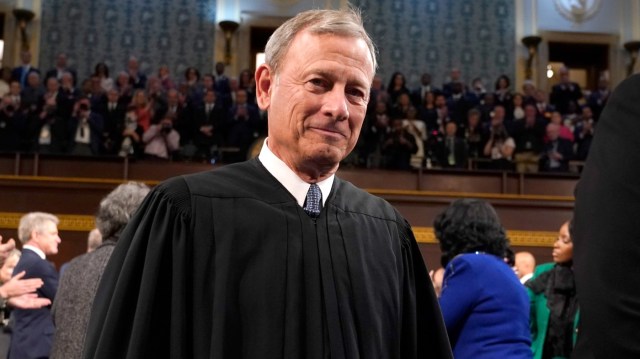Spiritual Exodus: The Shifting Tides of Religious Identity in America
Religion
2025-03-26 13:53:51Content

The Rise of the "Nones": Exploring Religious Disaffiliation Trends
In recent years, the landscape of religious identity in the United States has undergone a significant transformation. The religiously unaffiliated population, often referred to as "nones," has experienced remarkable growth, revealing fascinating insights into changing spiritual and cultural dynamics.
Where Are the Largest Gains Happening?
Pew Research Center's comprehensive studies have uncovered compelling patterns of religious disaffiliation across different demographics and regions. The most substantial net gains in religiously unaffiliated populations have been observed in several key areas:
- Urban centers with higher education levels
- Younger generational cohorts
- Regions with increased cultural diversity
- Areas with strong technological and scientific communities
Previous Religious Backgrounds
Interestingly, those joining the "nones" come from diverse religious backgrounds. Many previously identified as:
- Mainstream Protestant denominations
- Catholic congregations
- Evangelical Christian communities
- Moderate religious households
This trend suggests a broader cultural shift towards personal spiritual exploration and a more flexible approach to religious identity.
Implications and Insights
The growing number of religiously unaffiliated individuals reflects complex social changes, including increased secularization, individual autonomy in spiritual choices, and evolving perspectives on traditional religious institutions.
The Global Shift: Unraveling the Rise of Religious Disaffiliation
In an era of unprecedented global connectivity and information access, the landscape of religious identity is undergoing a profound transformation. The traditional boundaries of faith are being challenged, redrawn, and in many cases, completely dismantled as individuals increasingly question and redefine their spiritual affiliations.Exploring the Seismic Transformation of Global Religious Landscapes
The Emerging Phenomenon of Religious Disengagement
The contemporary world witnesses an intriguing sociological phenomenon where individuals are progressively distancing themselves from traditional religious frameworks. This trend transcends geographical boundaries, cultural contexts, and generational divides, revealing a complex narrative of spiritual exploration and personal autonomy. Researchers have observed a remarkable pattern of individuals transitioning from structured religious identities to a more fluid, unaffiliated status. Psychological studies suggest that this shift is not merely a rejection of religious institutions but a nuanced journey of personal spiritual discovery. Young adults, in particular, are demonstrating unprecedented levels of religious skepticism, driven by increased access to diverse philosophical perspectives and a growing emphasis on individual critical thinking.Demographic Dynamics of Religious Switching
Comprehensive global research indicates that religious switching is not a uniform phenomenon but a multifaceted process influenced by socio-economic, educational, and technological factors. Developed nations with higher education levels and robust digital infrastructures are experiencing more pronounced trends of religious disaffiliation. Sociological analyses reveal that this transition is often characterized by a gradual deconstruction of inherited belief systems. Individuals are increasingly viewing religious affiliation as a personal choice rather than an inherited tradition, challenging long-standing cultural and familial expectations.Technological Influence on Religious Identity
The digital revolution has fundamentally transformed how individuals engage with spiritual and philosophical concepts. Online platforms, social media, and global information networks have democratized access to diverse religious and philosophical perspectives, enabling unprecedented intellectual exploration. This digital ecosystem provides individuals with tools to critically examine religious narratives, compare theological frameworks, and connect with like-minded communities across geographical boundaries. The result is a more informed, interconnected approach to spiritual identity that transcends traditional institutional constraints.Psychological Motivations Behind Religious Disaffiliation
Psychological research suggests that religious switching is often driven by complex emotional and intellectual processes. Individuals report seeking authenticity, personal meaning, and intellectual coherence in their spiritual journeys. The traditional religious narrative increasingly appears insufficient in addressing contemporary existential questions. Empirical studies highlight that this transition is not a rejection of spirituality but a sophisticated reimagining of personal belief systems. Many individuals maintain a sense of spiritual connection while rejecting formal religious institutional structures.Global Implications and Future Projections
The rising trend of religious disaffiliation carries profound societal implications. Educational institutions, policymakers, and social scientists are closely monitoring these transformative dynamics. Projections suggest that this trend will continue to reshape social structures, challenging established religious paradigms and fostering more inclusive, individualistic spiritual landscapes. Researchers predict that future generations will likely develop more fluid, personalized approaches to spiritual identity, characterized by continuous exploration and adaptability.RELATED NEWS








